Transgender people flee Indonesian region after 12 are stripped naked and beaten
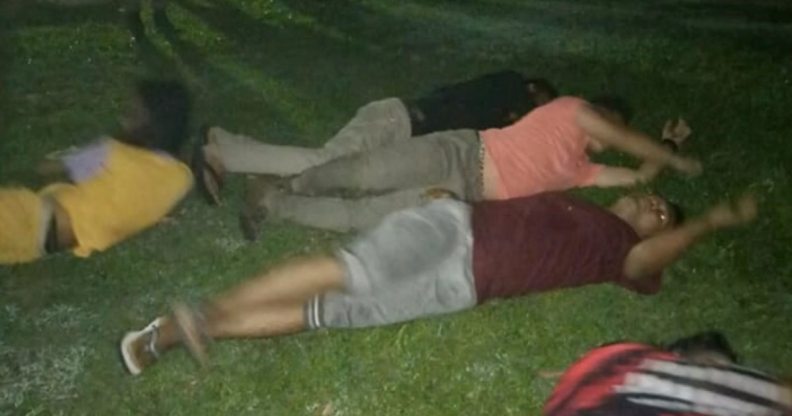
The women were forced to roll on the floor in mock military exercises (YouTube/LOE TUBE)
Transgender people are fleeing from the Indonesian province where police arrested 12 trans women and shaved their heads in an effort “to turn them into men”.
Scores of trans people have escaped Aceh – the only region in the country with Shariah law – after authorities raided five beauty salons, arresting both employees and customers.
The police action was called “operasi penyakit masyarakat,” which translates as “community sickness operation”.
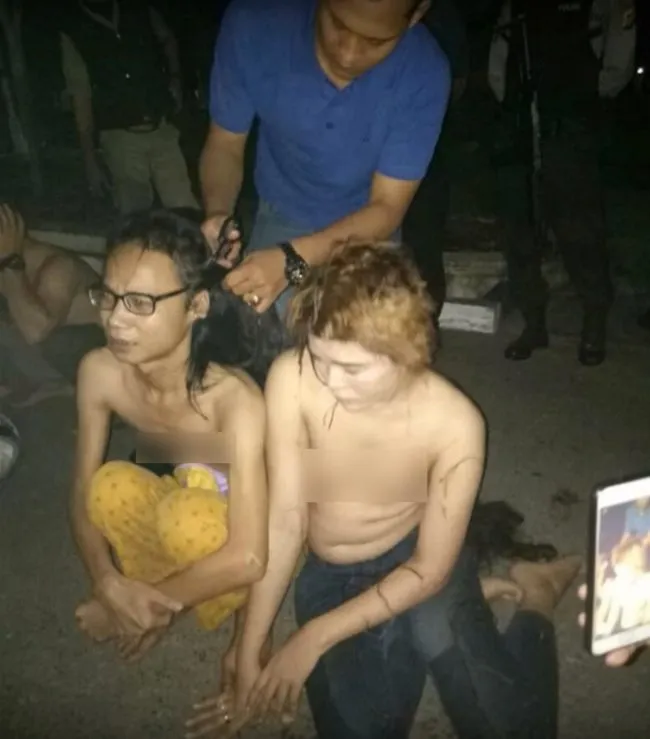
(YouTube/LOE TUBE)
North Aceh Regency Police Chief Ahmad Untung Surianata said the detainees were part of a “social disease” and would be coached “until they really become men.”
The trans women – known as “waria” in Indonesia – were stripped naked and beaten, according to The Guardian.

(YouTube/LOE TUBE)
They were also forced to put on stereotypically male clothing and do a series of demeaning exercises, including performing sit-ups and push-ups.
The police chief said that “the officers also nurtured them by way of having them run for some time and telling them to chant loudly until their male voices came out.”
The country’s authorities have announced today that they are investigating the arrests.
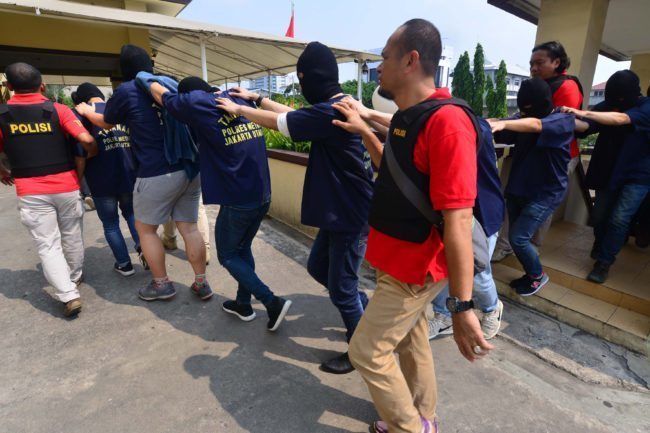
(Getty)
“There were photos circulated that led us to suspect that there had been physical action taken against the suspects,” Misbahul Munauwar, a spokesman for Aceh police, told Reuters.
“The national police chief has instructed us to investigate those photos and to determine if there was any… procedural or ethical violation.”
Anti-LGBT actions by authorities in the country seem to be on the rise, with a proposal to ban gay sex likely to become law in the next two weeks.
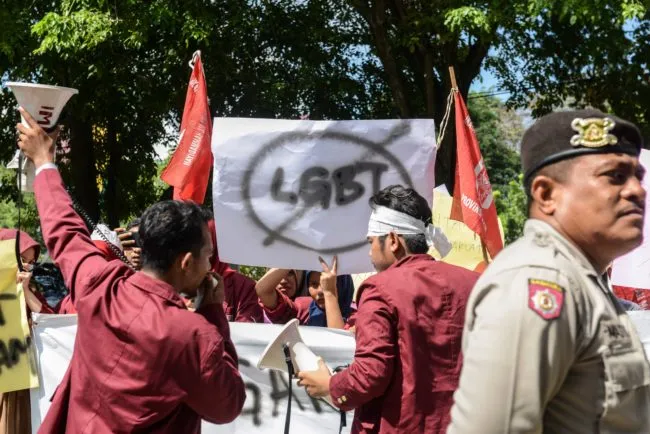
(Getty)
The bill, which reportedly has support from all 10 of the country’s main political parties, would make gay sex punishable by up to five years in prison.
Reza, a representative from an LGBT group in Aceh who did not want to use their real name, said: “We felt so sad and angry when we heard about the arrest of the waria and their inhumane treatment.
“After that we got really scared,” they added.
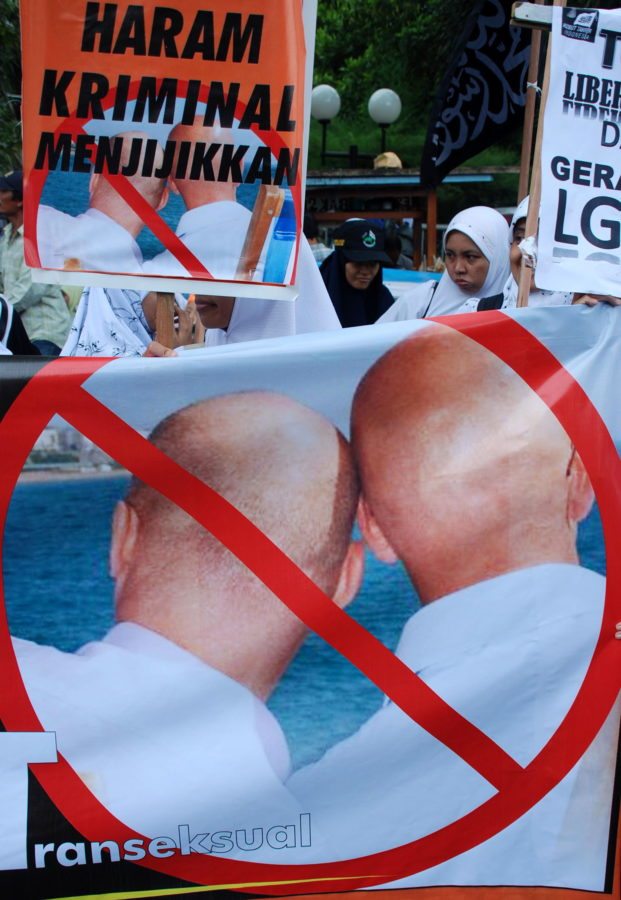
(Getty)
It is understood that there is a demonstration planned for today in support of the “eradication of LGBT”.
The protest, at least the second major anti-LGBT march in the space of a few weeks, has attracted support from more than 50 groups.
Reza said that trans people and beauty salon owners – both scared of being targeted again – had taken evasive action.
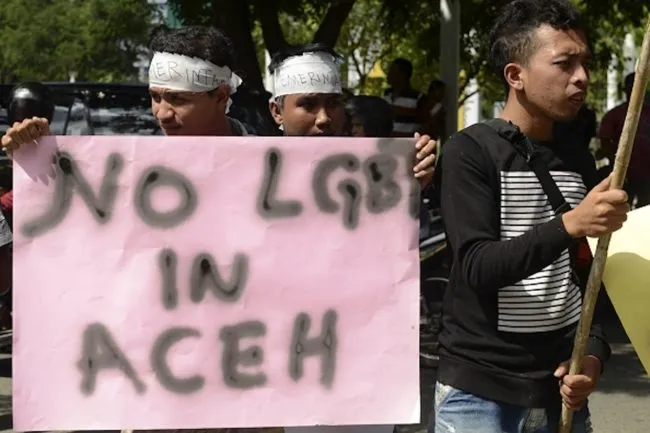
(Getty)
“A lot of the salons have closed because of rumours that fundamentalists will raid them after Friday prayers, so they have temporarily closed down and evacuated – about 40 so far have left,” they said.
“Waria are very easy to spot so I think they will stay away until things calm down.”
Hartoyo, an activist who was tortured by Aceh police in 2007 because he’s gay, said he regularly receives death threats.
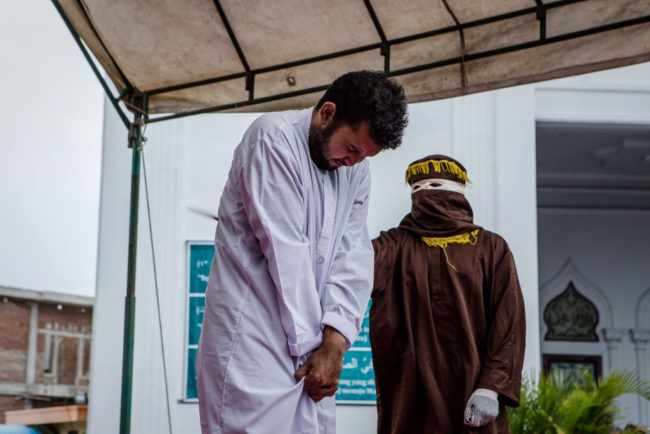
A man is lashed in Aceh for having gay sex (Getty)
He said that most trans people he knew had fled the region or were hiding for the time being.
“The politics is very, very dangerous for the majority of LGBT in Indonesia right now but specifically in Aceh it is even more dangerous,” said Hartoyo.
This was evident in May, when two men were caned 83 times in Aceh as a legal punishment for having gay sex.
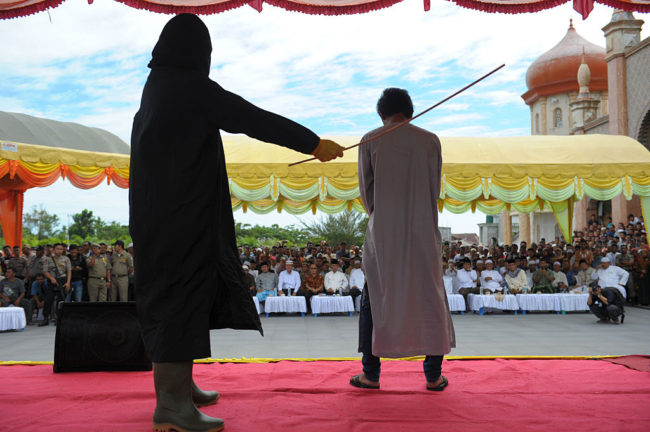
(Getty)
The 20 and 23-year-old, identified only by their initials – MH and MT – were the first to be sentenced to punishment for gay sex in the region.
The father of one of the men had little sympathy, saying: “After this problem is resolved, we will send him to an Islamic boarding school to be educated so he won’t be deviant anymore.”
Amnesty International has repeatedly urged Indonesia to stop its horrific treatment of LGBT people in Aceh.
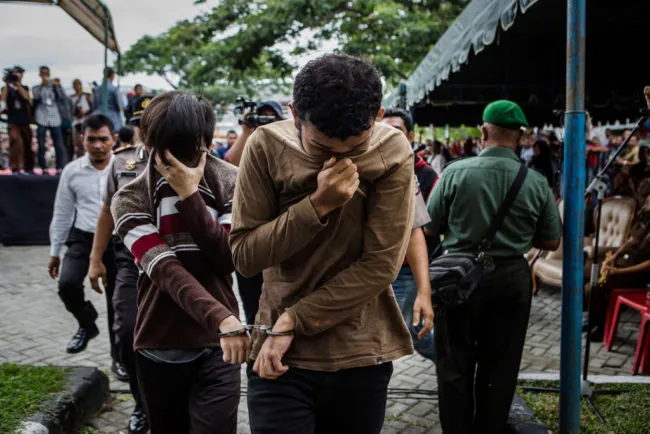
Gay men in Indonesia being led to be lashed 83 times (Getty)
A report alleged that there had been attempts to ‘cover up’ the anti-LGBT oppression in the region by moving the floggings away from the public eye.
But it’s not just in Aceh where LGBT Indonesians suffer.
The caning punishment came the day after 141 men were arrested in Jakarta, the capital, for having a “gay sex party”.
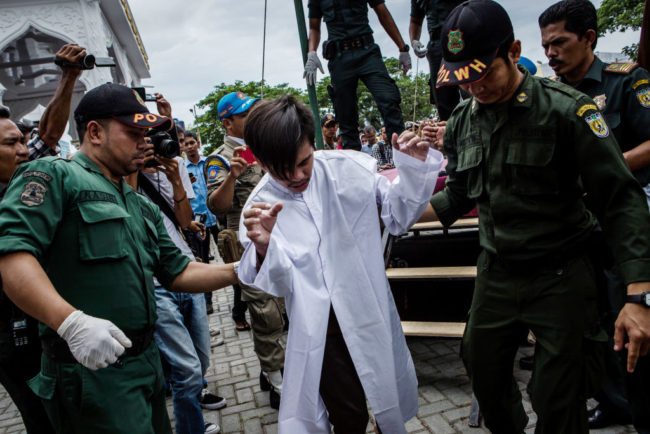
Indonesian man escorted after public caning for having gay sex (Getty)
And earlier that same month, eight men were arrested for holding a “gay party” in Surabaya, the second biggest city in Indonesia.
It was also announced that the country’s government would clamp down on gay culture – instituting a ban on online “gay propaganda” after a request from the police.
Last year, Indonesian lawmakers gave the green light to a proposed law that would outlaw ‘LGBT behaviours’ on television.
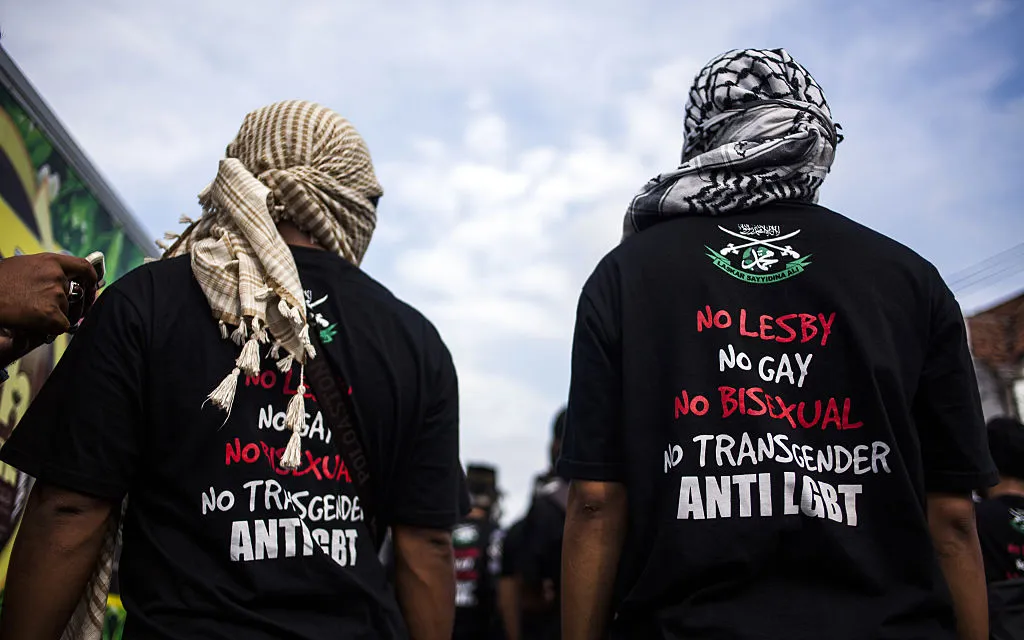
(Getty)
Despite all of these regressive steps, Hartoyo still had hope for positive change.
“Maybe this is the first step of the sexual revolution, the inspiration to fight back,” he said.
“Maybe it will make us open our eyes.”

